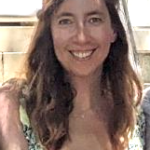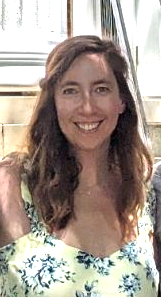I’m extremely happy to have the chance to share the email below with FPR readers for two reasons. One, because it will allow me to talk about the incredible group of people who read Rilke with me through the Catherine Project, and two, because it will allow me to talk about Rilke himself. The poet Rainer Maria Rilke means so much to me and to many others because he touched the heart of meaning in a way that prompted his contemporary, poet Marina Tsvetaeva, to tell him, “You are not the poet I love most. ‘Most’ already implies comparison. You are poetry itself.” Rilke’s achievement in bridging being and becoming is overwhelming: he took all the scraps of reality we brush up against every day and he wrought something whole in the way Plato is always looking for. In crossing the boundary between theory and practice, Rilke gained what Robert Hass calls a “rare human victory” in wholeness. If I am gushing, it is deserved, and I am not alone in it. Huck Gutman, in his lovely site Poetry Letters, rhapsodizes that the ninth of the Duino Elegies is “so stunning that I don’t know how to deal with it…. In the height of human achievement, I would put this poem.” And J. B. Leishman, in the first translation of Sonnets to Orpheus in 1936, felt “in reading these sonnets that we have come round the spiral to another ‘dawn of consciousness,’ where language is in the making, and where myth and symbol must often supply the place of not yet thinkable thoughts.”
It was the Sonnets that I had the joy of leading a group of readers through for the Catherine Project, a remarkable organization founded by St. John’s College tutor Zena Hitz. The Project offers reading groups about great works of literature (and science, history, and more) for free to anyone seriously invested in learning for its own sake. No expertise necessary, only enthusiasm. This particular group was transformative, partly thanks to the pure joy, sincerity, and acuity with which these readers threw themselves into the poems, and partly thanks to Rilke. Each week, we realized more that we were not so much reading something together as growing something organic in real time (see Rilke’s victory mentioned above…). Most weeks, I was moved to try to capture some of the aliveness of what everyone put together, because the whole was beginning to mean more than the sum of its parts. I think I was more surprised by these recaps than anyone, as I tend to hate doing extra work. It’s a testament to the lightning in a bottle of this group.
Since we finished the Sonnets in September 2024, we’ve stayed in touch, the poems have continued “working their way through us” (to use the words of a participant), we’ve met each other in person when possible. 2025 also happens to be the 150th anniversary of Rilke’s birth, and I am so touched and grateful to be able to celebrate him in this way. If the email below makes one thing clear, it is that these insights into this work and Rilke are available to me only because I read him in community with these minds. For that gift, one that is like the tilling of a very fertile soil, I’m forever thankful to them. And as ever, to Rainer Maria Rilke for what he called “the continuities of the Sonnets to Orpheus,” for knowing and then forming. If you’ve never read him, you can always start with Letters to a Young Poet or a few of the standalone poems; the Elegies and the Sonnets will be there when you need them.
With thanks to: Ben, Dominick, John, Mark, Michele, Praboda, Robert, Roger, Ron, and Thomas
***********************************
Hello lovely group,
Echoing Michele and Praboda's thanks for truly such a beautiful session. I looked on the back of my magnet and it's one of those "Quotable Cards" magnets that I probably bought from those racks they have at stores sometimes with the mugs or magnets--they have a website but I'm not sure they're still selling the Rilke one. Good luck, I hope you can find it!
Was thinking about the many layers we sifted through for days after last Tuesday. The ones that stuck with me most: how the "glorious overflowings" (2:22) have become human; we've made it all the way from the overstepping of Orpheus, the land, and poetry into something our own lives can do (spill over as though water from a fountain--or, perhaps, light from inside the petals of a flower)--this if you are a) receptive and b) in touch with the essence of life beyond the non-eternal superficialities. Those insights reminded me of the famous Rilke quote about "living the questions... and perhaps someday, without knowing it, living your way into the answer" and that we've literally done that now across the cycle of sonnets starting with questions of what it means to "overstep" and why Orpheus can do it though humans can't--and now toward the end finding that perhaps humans can.
It also led to Thomas' wonderful insight that part of Rilke's main project is over and over again to turn us away from our natural inclination to be either caught up in trivialities or to be downright dejected by difficulties—and to give us an inflection point, as it were (see the "turning" in sonnet 23, and 12), to continually turn toward a deep meaning and wholeness in life that is always there and hardly ever seen for what it is. This was tied to the "bludgeon" of the bell in 22 and linked to Tom's earlier observation (from 5) that apparently a violence of some kind is required to wake us up. Even looking at these now and trying to recall the details of our conversation, I know I'm leaving out so many things, but I just wanted to try to get at a few. Michele asked why, in fact, we are "only just where we praise," i.e., why praising is the only constant requirement, and I think it has something to do with the complete intermixing of death and life as Rilke sees it (he is truly proposing that life is possible only via an element of death) and also with getting ourselves fully entwined into the rhythms of the land. The land is a whole in itself, and always worth praising, and actually I see now (!) that in 25, "the human rhythm" has literally worked itself into "the retentive stillness of the strong / early-spring earth." Though there is still language in 25 to remind us that we're not in charge, the earth is, this seems to me the other end of an arc from 1:12, where the earth didn't need humans at all. I think the human figure has come a long way through the course of these sonnets.
Ha, that was so much more than I intended to write and more I'm sure than anyone will read so I'll just throw in that we tied the "fruits of consolation" to 21, but 17 still gives me trouble (along, of course, with many others); a certain messianic voice in 24; and the gorgeous flip at the end of 25, a microcosm of the major flip that is the sonnets' aim. And all of this reminds me to shout out John's point about all the questions in 18—questions in a sonnet about Vera's death and questions that are themselves an inflection point, requiring another side.
TL; DR: I am so excited to see you all tomorrow at 6 pm ET for the LAST FOUR sonnets of the entire thing—I can't believe we've done it all! And I'm even more excited for a last meeting next week to cover the work as a whole—I have an idea for how we can go about this. And if you can't make it, then we can try to "be ahead of all parting." See you tomorrow :).
-Jordi
Image Credit: Alfred Sisley, ” Landscape at Louveciennes” (1873) via Getarchive.





1 comment
Robert Wheadon
Being a part of the Catherine Project Rilke reading group with Jordi was amazing! The magic that happens is when a group of people from varying walks of life meet and learn from each other. Jordi was a fantastic facilitator of the group. She led us new directions of thought through her clear love of Rilke’s poetry. It was an honor to be a part of this group; it is a group that continues to share and grow together.